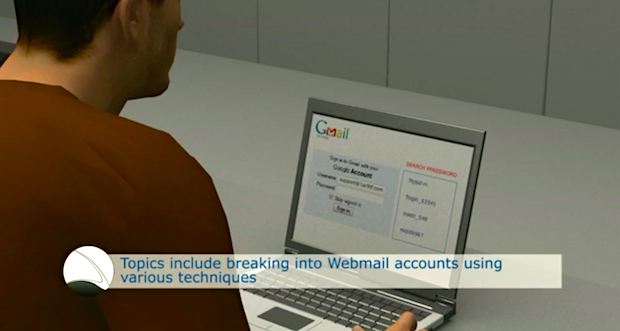Skype monitoring, Gmail hacks, and fake iTunes updates: How governments can track you

The chances are you're not being watched at this very moment in time.
But popular software and services, from Skype to Gmail, Hotmail, and even iTunes are vulnerable to the covert spying technologies the private sector has invented.
Wikileaks last week revealed its latest treasure trove of leaked material, showing only the tip of the iceberg for what the intelligence sector offers. Private companies sell their civil right infringing software, privacy invasive hardware, and other technologies to state organisations for widespread monitoring, hacking and surveillance of its citizens.

In recently released videos, Gamma Group touts the ability of how its broad range of "infection functionality" can remotely access the full hard drive of another computer, inject downloads with spy software, and trick users into downloading fake updates to gain access to their lives.
When was the last time iTunes required an update? When did you last log into Gmail? Have you recently had a seemingly private conversation with someone on Skype?
If Gamma has this capability, then your government may do as well.
Gallery A range of software, specifically designed to access computers, cell phones and networks, can inject downloads in progress with spy software, or hack cell phones. From intercepting Skype phone calls to ISP-level surveillance monitoring. This is how one company does it.
Its technology can attack a machine, smartphone or network on a specific target, or it can be installed at a Internet service provider level to offer widespread access of the innards of one's private and personal life.
It can also be used to access industry secrets, healthcare providers, or even other government networks.
While Gamma is only one example of a multitude of private sector organisations that work on behalf of governments, Wikileaks' insight into how the company practices can be applied as a minimum benchmark for others, at least.
It has long been no secret that governments spy on its own citizens.
The BBC discovered evidence post-revolution that suggested links to the repressive Mubarak-Egyptian regime. The company denied the allegations, yet were unwilling to divulge which countries or governments exactly it supplies technology or training to.
From British intelligence service GCHQ's efforts to crack BlackBerry encryption in the wake of widespread rioting, to the U.S.' National Security Agency's Echelon satellite intercepting capabilities, governments have a vast array of technology at its disposal.
Yet more often than not with government, it cannot provide the services it needs to fulfil its 'duties' to its public.
One would question whether spying on its own citizens is a duty, but "protecting the public" is the foremost role of government -- no matter how they persuade its public otherwise.
Should a government authorise the private sector use of such wide, sweeping surveillance, the matter of accountability becomes unclear.
But what the private sector offers governments, democratic and otherwise alike, leaves even the most popular software vulnerable to unauthorised snooping and interception.
Related: